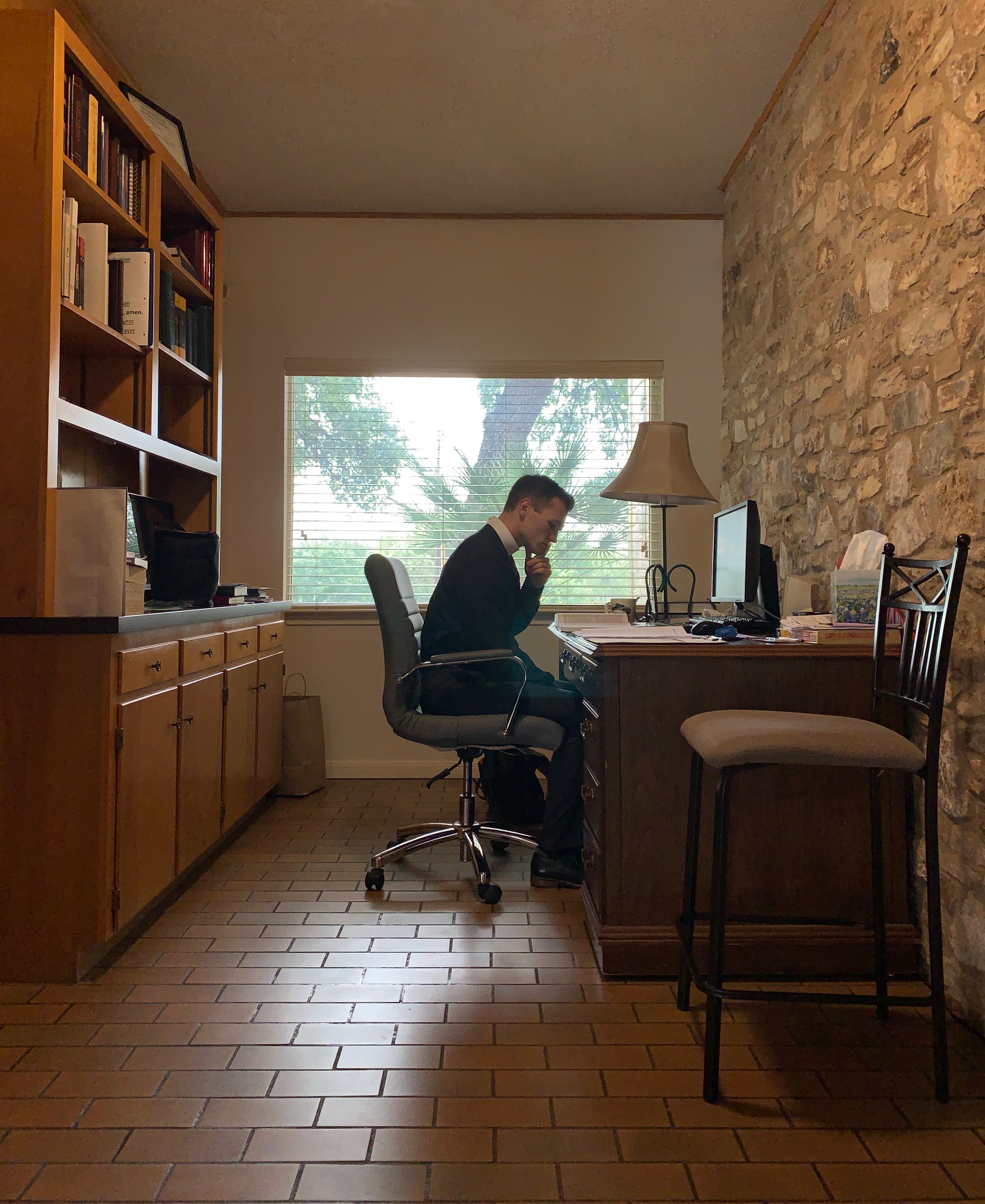Patrick Ernst: Literature and Faith by Ellie Mumme

I asked Bethany Lutheran College Alum and current Seminarian Patrick Ernst recently to write about how his English degree has benefited his career and his life. –Ellie Mumme
On his background:
I come from a non-academic family, and the more I studied English language and literature, I realized that the names we study and revere were often non-academics too. Dr. Hanna famously suggested to students during my college years, “If you want to be a great writer, it is almost necessary to have a terrible childhood!” What a statement! I don’t think that creative people need to have dark experiences in order to understand language, necessarily. In fact, Dr. Hanna’s observation, which is accurate, demonstrates to me that writing creates universal points of connection. The fact is, from a Christian standpoint, we all have terrible childhoods. We all experience growing up and our loss of innocence, losing loved ones, coming of age, making a difficult way into the world. A childhood that is charmed by all standards still has these elements. That fact, though, also means that profound communication through language is open to anyone. Going deeper than all the specific experiences you and I and each individual has, we see that there are a few basic strings on which we hang the experiences of our lives. Moreover, we all know what it’s like to have them pulled, stretched, broken, and re-strung.
How do your studies help you as a seminarian? How can they benefit you as a pastor?
As far as my studies went, English was a great major choice for several reasons. My baccalaureate years were meant to prepare me for theological study at a seminary, and to that end, my electives were consumed by language study: Greek, Hebrew, Latin, and German. It is absolutely true that I could not learn another language any better than I knew my mother language. So English was a stepping stone to language study in general. But most of my English courses did not deal with grammar per se. Most of my English courses dealt with text – reading text, interpreting text, comparing texts. And the Lutheran norm of faith is nothing else than a text. An old text, yes, and a compiled text. The skills needed to read several dozen individual texts between 2000 and 3500 years old and deduce their common narrative are difficult to build, but that’s exactly what an English major does. It requires you to read texts, some old, some new, some in language obscure and difficult. The third benefit for me was a connection with all kinds of people. Books seem stale to some people, but before 1800 at least they were the only way people could record messages and communicate them across centuries. For a pastor, whose job is the care of emotional, spiritual, thinking people, written language is the way to get to know thousands of people from ages and places I will never experience, and see in them those common strings of humanity: joy, suffering, redemption, sin, love, religion, pleasure, heartbreak, grief, hope. You don’t have to be a Christian to get this. All kinds of people read and write because those activities illuminate our human experience as a shared experience, and one more complex than anything we ourselves could come to understand alone.
Of course, as a seminarian I write papers and answer essay questions and memorize definitions all the time. There are many times when my use of language comes down to being able to write a good paragraph and organize my thoughts. Those skills are just as valuable to me as those which help me interpret the meaning of a text.
My years studying English at Bethany were formative ones. As I grew up, I grew up into English. It was not glamorous or magical, but, to put it plainly, it was good for me. It was the start of an adventure in thought and life that I, and you, never need to give up!
Patrick is now in his fourth year of seminary studies, and is currently serving as a vicar in San Antonio, Texas.
